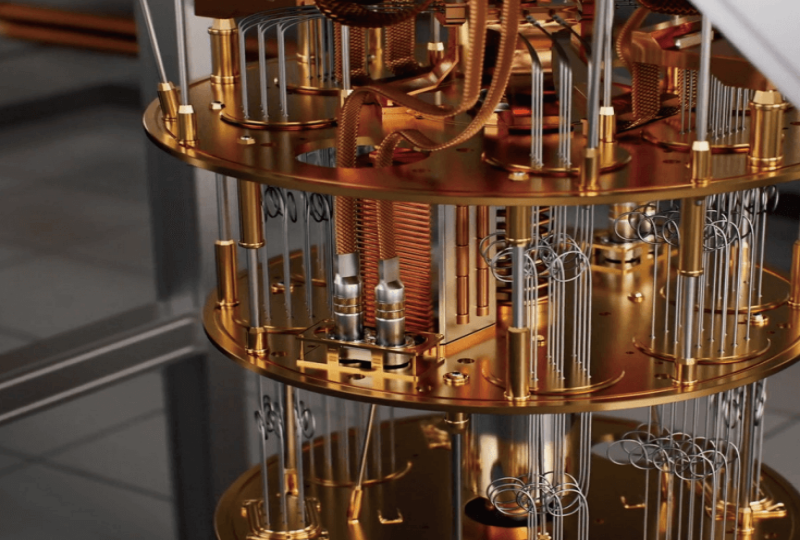University of Western Australia: SpinQ Desktop QuantumComputers, Crafting a Real Quantum Teaching Interactive Experience
2023.05.24 · Press Release
As quantum computing technology continues to evolve, an increasing number of universities and research institutions are exploring its practical applications in research and education.
In its pursuit of quantum education, The University of Western Australia (UWA) utilizes the SpinQ Gemini and SpinQ Triangulum quantum computers. These devices not only deliver authentic quantum computing experiences, enhancing students' understanding and capabilities in the field, but also significantly propel the advancement of quantum science courses and elevate the caliber of quantum education at the university.
Developing Quantum Education:
The Search for "Ideal Teaching Aids" at a Prominent Australian University
Founded in 1911, The University of Western Australia (hereinafter referred to as UWA) is one of the most historical research universities in Australia and has always been known for its world-class research and education standards, as well as a number of outstanding scholars and scientists.
UWA maintains a leading position in quantum computing, dedicated to equipping students and researchers with state-of-the-art resources to advance the field. Its quantum physics scored a perfect 5/5 in the latest Australian Research Excellence Assessment (ERA) rankings. The Engineering for Quantum Systems (EQUS) department is a key component of the ARC Centre of Excellence.
Quantum science is a central research focus and foundational program at UWA's Physics Department. The majority of students, whether pursuing Physics or Frontier Physics, engage with the Quantum Information and Computing course. However, UWA educators have identified a gap in quantum computing education: beyond theoretical knowledge, practical experimental experience is crucial.
The absence of ideal quantum teaching aids hinders students from interacting with quantum phenomena like superposition and interference, which are challenging to replicate on classical or virtual quantum platforms.
Additionally, quantum computing curricula often require experimental components, such as observing Rabi oscillations, preparing Bell states, and simulating the BCS model. Interactive demonstrations on a real quantum computer are essential for students to grasp the principles of quantum computing.
Desktop Quantum Computers:
Addressing UWA's Quantum Education Challenges
To foster quantum education and enhance its quality, UWA's Physics Department and the Pawsey Supercomputing Centre have established the UWA & Pawsey Quantum Computing Centre (UP-QCC). Utilizing SpinQ's desktop NMR quantum computers, the Gemini and Triangulum, the center offers students tangible equipment and interactive experiences with quantum control design, improving their skills and engaging with Pawsey's Quantum Supercomputing Innovation Centre.
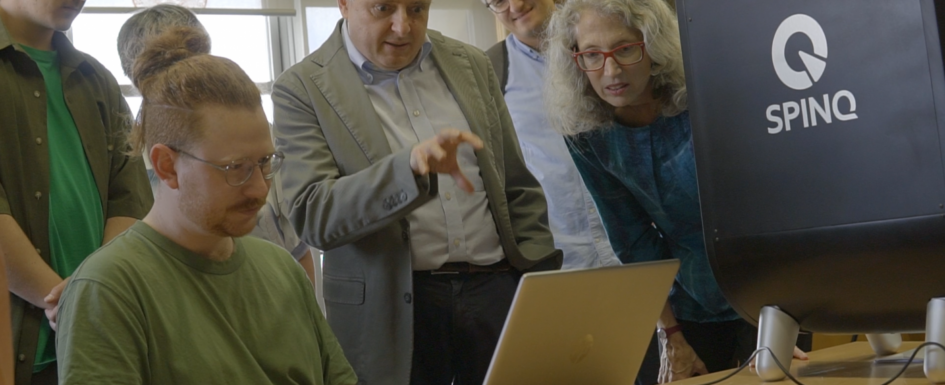
CTO of Pawsey Supercomputing Centre Australia, Ugo Varetto,
and Education Manager, Ann Backhaus, with SpinQ Gemini
As desktop NMR quantum computers, SpinQ Gemini and SpinQ Triangulum are compact, employing nuclear magnetic resonance principles. They use the spin properties of the nucleus as qubits, and manipulate their states with radio frequency pulses, while also supporting open-physics hardware-level pulse sequence editing for user programming.
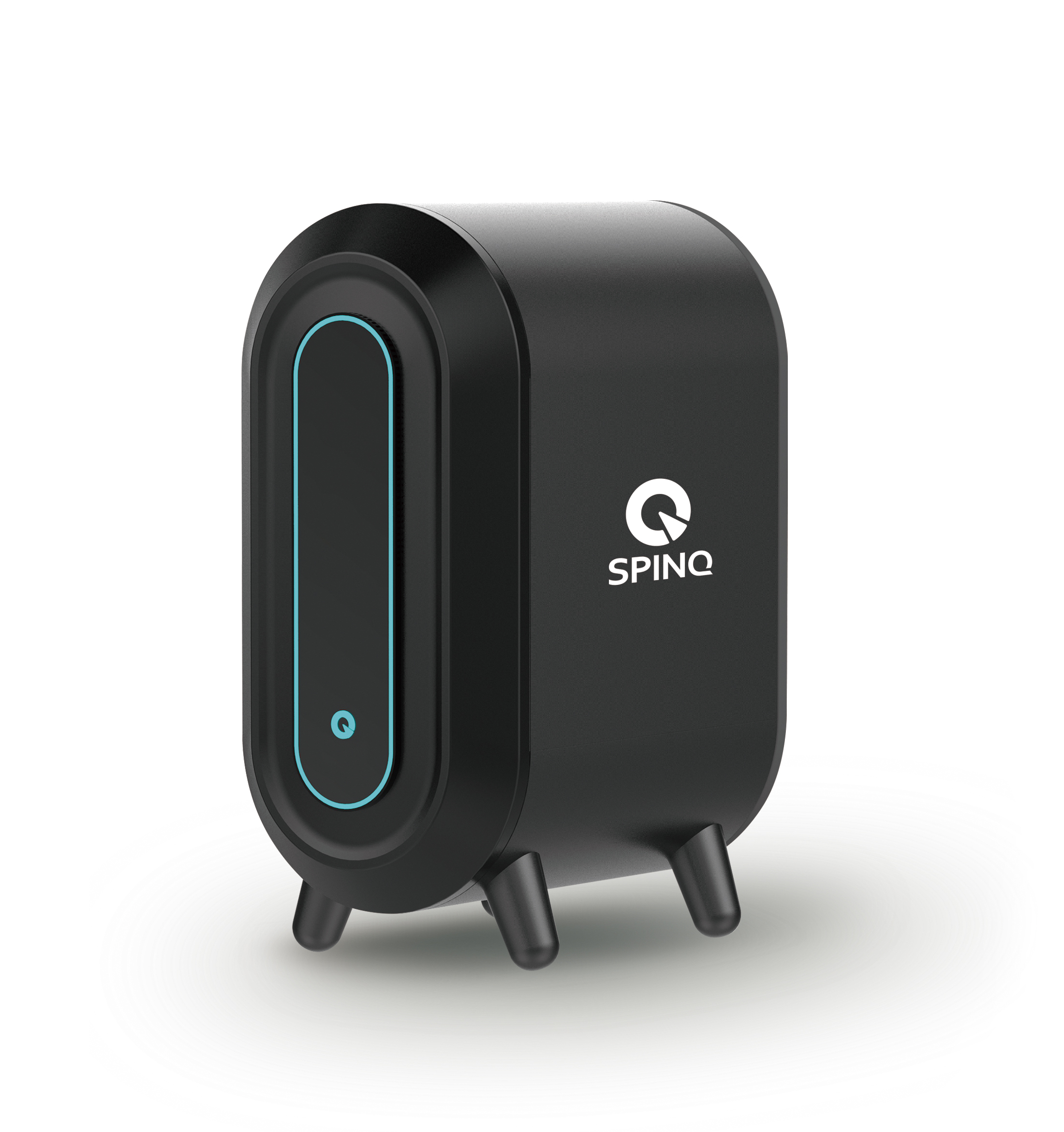
The 2-qubit Desktop NMR Quantum Computer - SpinQ Gemini
Contrasting with the typical massive quantum computers, the SpinQ Gemini and SpinQ Triangulum use permanent magnets for their static fields, achieving miniaturization. These units are lightweight, and portable.
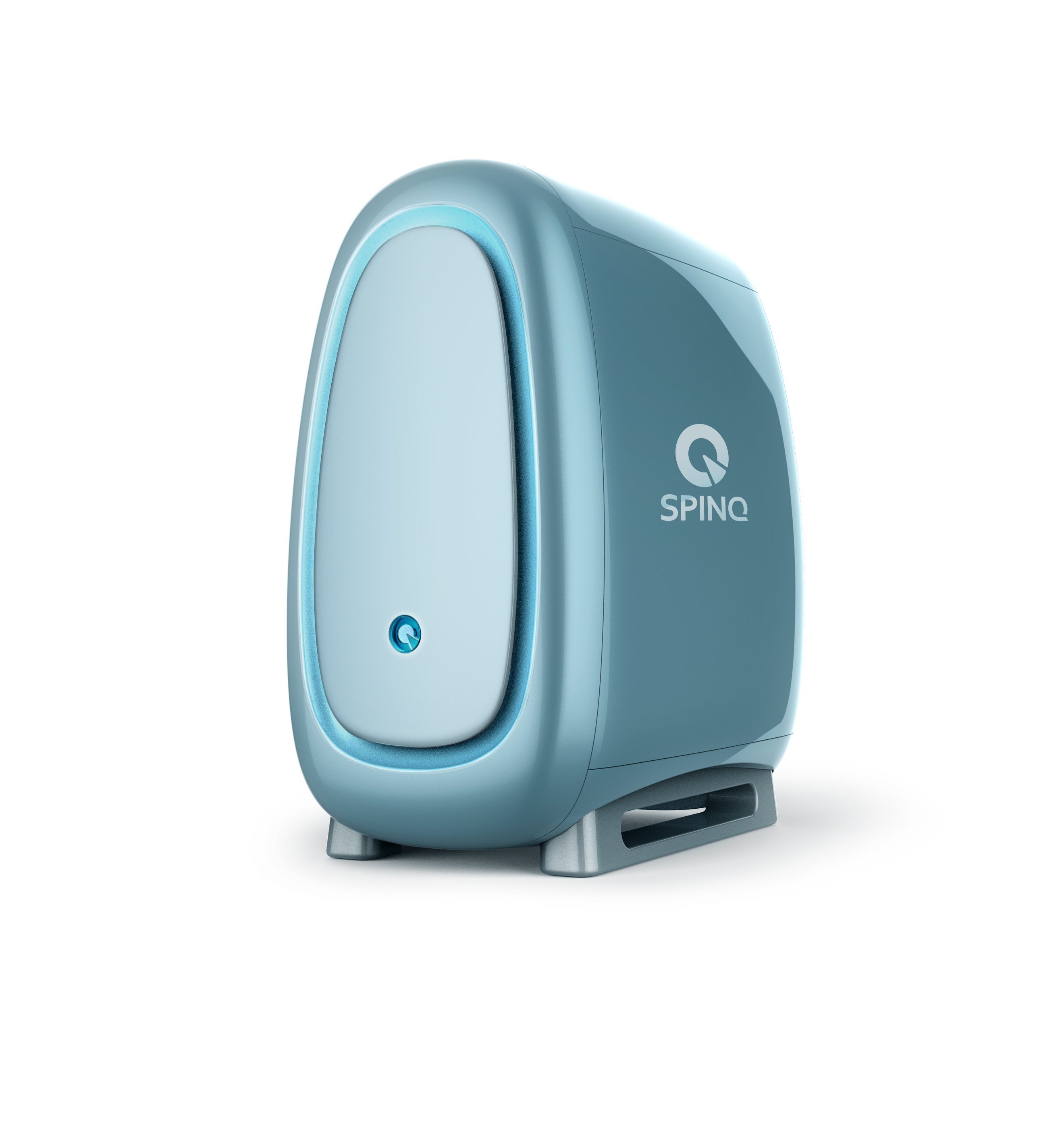
The 3-qubit Desktop NMR Quantum Computer - SpinQ Triangulum
For UWA, the SpinQ Gemini and SpinQ Triangulum operate stably at room temperature, simplifying usage for educators and researchers. In the classroom, UWA instructors can demonstrate key quantum computing processes and deepen students' comprehension through hands-on practice.
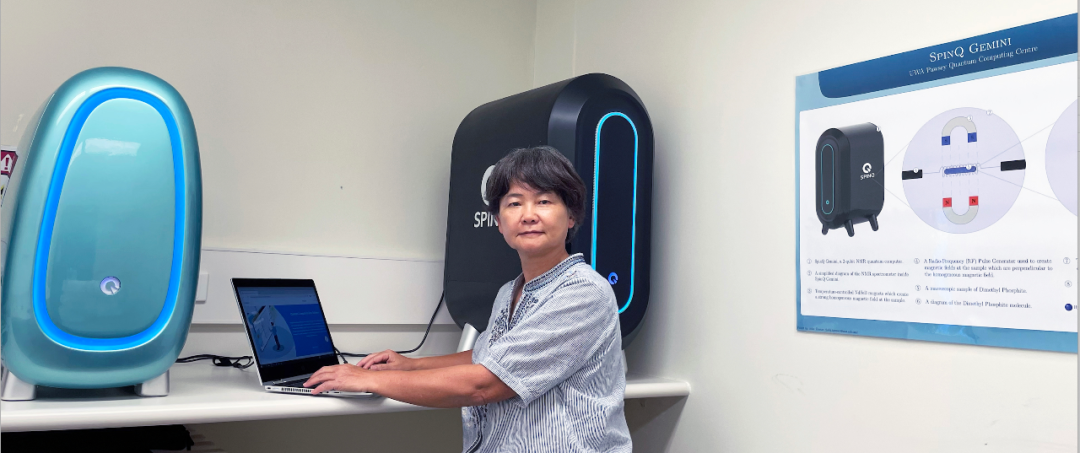
Professor Jingbo Wang of UWA, with SpinQ Gemini and SpinQ Triangulum
The low-maintenance and cost-effective nature of these quantum computers alleviates the need for specialized staff to maintain the equipment, conserving UWA's budget.
The built-in algorithmic cases enrich students' learning experiences. As teaching tools, the Gemini and Triangulum include essential quantum computing algorithms and over 10 typical quantum algorithm teaching cases, enabling students to conduct industry-standard quantum algorithm experiments and observe applications in action.
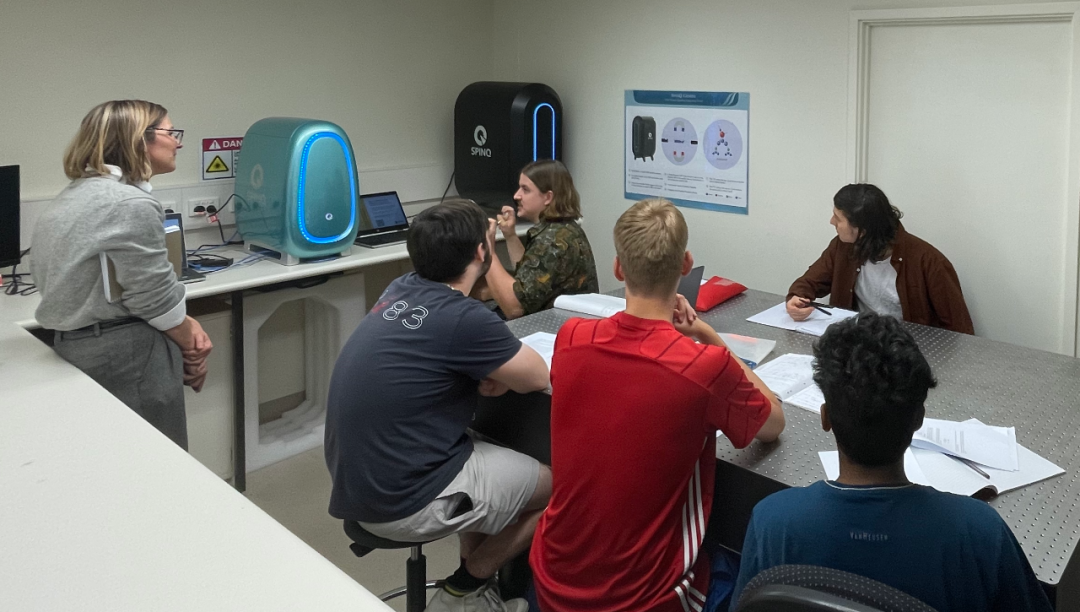
UWA Students Engaging with SpinQ Gemini and SpinQ Triangulum
In addition, SpinQ Gemini and SpinQ Triangulum have built-in quantum computing experiments, such as Rabi oscillation observation, Bell state preparation, BCS model simulation, hydrogen atom ground state energy solution, etc. These cases and examples are often based on real-life research and applications, which can better stimulate students' interest and creativity.
For UWA students, since the SpinQ Gemini and SpinQ Triangulum have been put into operation, they have not only deepened their own understanding of the principles and concepts of quantum computing through hands-on practice but also developed relevant skills such as quantum programming during the practical process of operating the desktop-type quantum computers. More importantly, they provide a real interactive learning platform for UWA students, helping them to master quantum computing knowledge more efficiently and develop innovative thinking and problem-solving skills.
For UWA educators, SpinQ's desktop quantum computers offer intuitive and comprehensive teaching resources that spark students' interest in quantum computing and elevate the quality of instruction.
Professor Jingbo Wang, Head of the Quantum Computing Laboratory at UWA, said, "Quantum computers have the potential to solve problems that traditional computers cannot. However, to understand quantum computers, the next generation of researchers, scientists, and engineers will need to develop a new set of knowledge and skills to fully utilize these powerful devices. By providing quantum computers for teaching purposes, SpinQ is providing an excellent opportunity for our students to develop their initial quantum thinking and put them at the forefront of the quantum computing field. In fact, quantum computers not only provide a real-life interactive platform for students to learn theoretical knowledge but also provide them with the opportunity to gain experimental experience."
Looking ahead, SpinQ remains committed to innovation, delivering superior quantum computing products and services for educational and research sectors. They aim to help students refine their quantum computing abilities, develop a quantum perspective, and contribute to the evolution of quantum education.
Contact Us
Featured Content
Popular Reads





.png)
